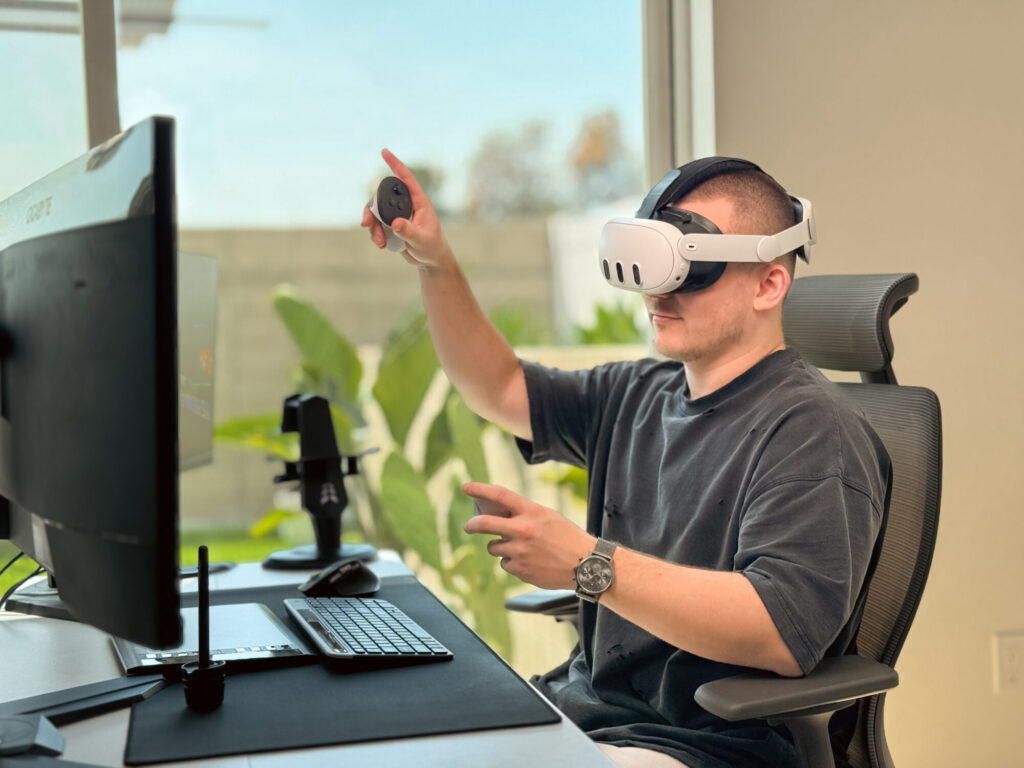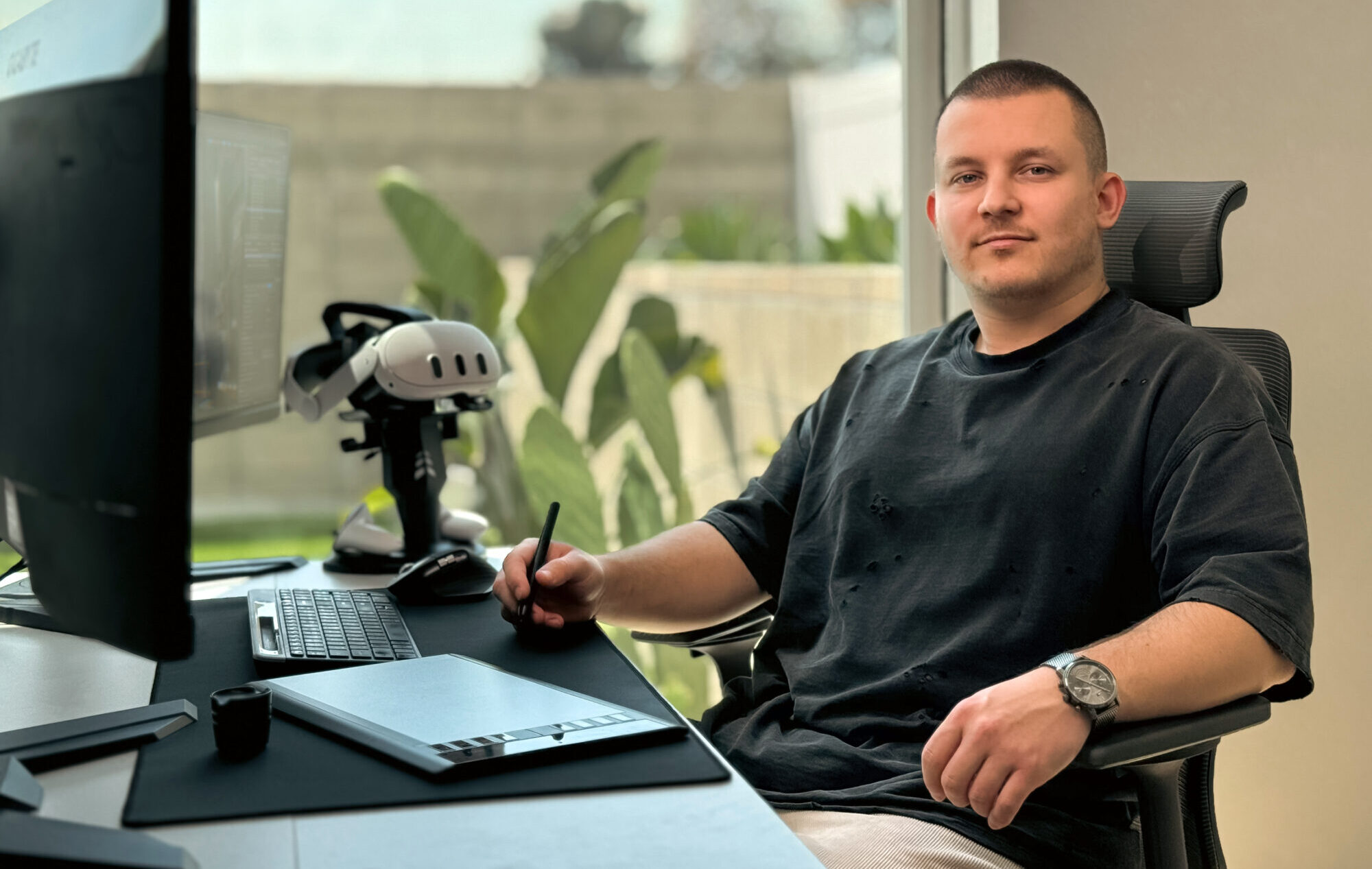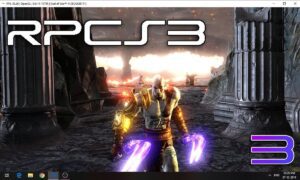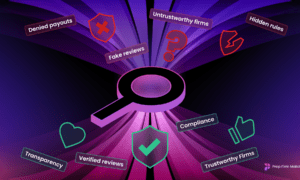Yevhen Vytvytskyi, a 3D artist and founder of Digital Stick, a game art outsourcing partner, has built a transparent and predictable production system that helped speed up the release of game projects without losing quality and became the basis for his own studio.
In the game development industry, time-to-market has become a critical factor for studios. A well-timed release — for example, during the holiday season or ahead of competitors — can significantly impact a project’s commercial success. Conversely, delaying a game can result in multi-million-dollar losses: the planned sales window is missed, the marketing rhythm is disrupted, and the studio continues to incur expenses without generating revenue. For instance, the French Ubisoft recently announced a 39% decrease in net orders in the third quarter of 2024 due to the lack of new releases and delays in key projects.
But how can studios manage to launch games on time without sacrificing quality? Yevhen Vytvytskyi, has the answer. As a Lead 3D Artist, CEO, and founder of the studio Digital Stick, he has contributed to acclaimed titles such as Ghostrunner, Ghostrunner 2, and Eleven Table Tennis VR — all successful hits with millions of players, high ratings, and steady sales. Through the management practices he introduced — including task structuring, the use of templates, strict quality control, and ongoing technical support for the team — projects where he led production (such as Ghostrunner 2 and those under Digital Stick) consistently completed tasks estimated for 5–6 weeks in just 3–4 weeks. The number of iterations and revisions was reduced by 40–50%. How did his freelance background shape his management style? Why does mentorship remain a key part of his work, even as a CEO? And what tools make it possible to speed up production without sacrificing quality? We explore these questions through the lens of Yevhen’s professional journey.
How Structure Emerges: From Chaos to System
The strongest management skill Yevhen Vytvytskyi calls the ability to build a clear, structured and transparent system of work. This approach is the result of practice, observation and constant analysis of processes in different studios.
Everything started with freelancing. Yevhen worked with mobile, VR and multi-platform projects, where each new order required from him not only the skills of a 3D artist, but also the ability to quickly dive into the system of work already built by partners, understand the structure and suggest improvements.
“This gave me a huge experience: I was constantly involved in projects with different tasks, styles and requirements. I had to adapt quickly, optimize pipelines and find solutions in non-standard situations – thanks to this I developed very quickly,” he recalls.
The next step was cooperation with Outstandly – a London studio specializing in the development of visual solutions and game content. At that time, Yevhen worked on several projects simultaneously and devoted his free time to developing his professional skills. This intensive rhythm allowed him to observe how different production processes are organized and where they can fail.
In the role of Lead 3D Artist, Yevhen began to implement his own approaches to the organization of work processes: a system of templates, clear control points and quality check stages. This approach yielded concrete results – the number of edits decreased by 40-50%, and the speed of production increased by 20-30%.
Ghostrunner: How a Systematic Approach Drives Company Growth
In 2019, Yevhen joined the team of One More Level studio. At that time, it was just preparing for the launch of the first part of Ghostrunner – a dynamic cyberpunk action game with an emphasis on visual richness and high technical performance. Yevhen worked on environment and asset creation, as well as striving to optimize workflows in his area of responsibility – through asset tuning, shader optimization, scene simplification and meeting the technical requirements of the project.
Then he began to form his own structured approach to work: using templates, intermediate quality assurance steps and a systematic approach to progress tracking, which later became the basis of his management practices.
These decisions were part of the overall success: upon release in October 2020, Ghostrunner was internationally recognized, nominated for the NAVGTR Awards 2021 in the Control Precision, Game, Original Action category, and sold over 2.5 million copies. The game not only brought One More Level to the global market, but also significantly strengthened its position in the industry. The value of the company’s shares increased more than 7 times.
Five Rules of Effective Production: Ghostrunner 2 Experience
While working on Ghostrunner 2, the next major title from the studio, in the role of 3D Environment Artist, Yevhen Vytvytskyi implemented a systematic approach to managing the production process in a large production environment, he later participated in this project through his studio Digital Stick and supervised the production as Lead 3D Artist. In order to speed up the production of key assemblies while maintaining high quality, he formulated and implemented five principles that formed the basis of the team’s work:
1) Step-by-step workflow with clear checkpoints — each task block was divided into stages with predefined quality criteria and deadlines.
2) Standardized templates and technical documentation — this eliminated ambiguity and significantly reduced the number of clarification loops.
3) Feedback at intermediate stages — instead of waiting for final approval, feedback and revisions were integrated into the process, saving up to 30% of production time.
4) Visual tracking tools — all tasks, timelines, and statuses were documented in Trello and Miro, providing the team with full transparency and a shared understanding of progress.
5) Technical mentorship — Yevhen maintained close communication with the team, helping artists solve challenges related to graphic optimization — such as texture density, lighting setup, and other key parameters affecting both visual quality and performance.
The results confirmed the effectiveness of the approach: tasks initially estimated at 5–6 weeks were consistently completed in 3–4. Large asset blocks that would typically require up to 16 weeks were delivered in just eight — without any loss in quality.
“A clear process isn’t a constraint — it’s a support system for the team. When everything is well-structured and transparent, people work with more confidence and peace of mind,” Yevhen notes.
This management approach — built on structure, visual transparency, and hands-on technical support — was later scaled to other studios as well. Notably, at Program-Ace, an integrator of innovative solutions and custom software development with over 30 years of experience, Yevhen led the art team on an advanced project, where he was responsible for the stability and quality of the entire production pipeline.

Founding his own studio
The logical continuation of Yevhen’s managerial path was the founding of his own studio, Digital Stick. He began to scale the experience he had gained in freelancing and international companies not as a team member, but as its leader. Along with production, he focused on strategic tasks: building business processes, client relations, testing new channels for attracting projects and positioning on the international market.
At the same time, Yevhen has retained a deep immersion in the artistic and technical part. He continues to develop as a 3D specialist, mastering innovative pipelines and flexibly adapting the team to the requirements of specific customers and platforms. This allows the studio to stay relevant in a rapidly changing environment. He pays special attention to mentorship: even when the workload is high, he personally trains artists.
“I make sure to explain not just what to do, but why it should be done that way. This helps develop specialists faster and raises the overall quality of production,” Yevhen shares.
Currently, Digital Stick is actively expanding its expertise in VFX, animation, and cinematic production for games. The management system implemented by Yevhen enables the team to grow and take on more complex and engaging projects. For clients, this means stability, predictable timelines, and transparency at every stage of the process. For the studio, it creates opportunities to build long-term partnerships and consistently meet commercial commitments. This approach ensures a sustainable and efficient production pipeline, even under high workloads — a crucial advantage in the competitive, deadline-sensitive gaming industry.



































